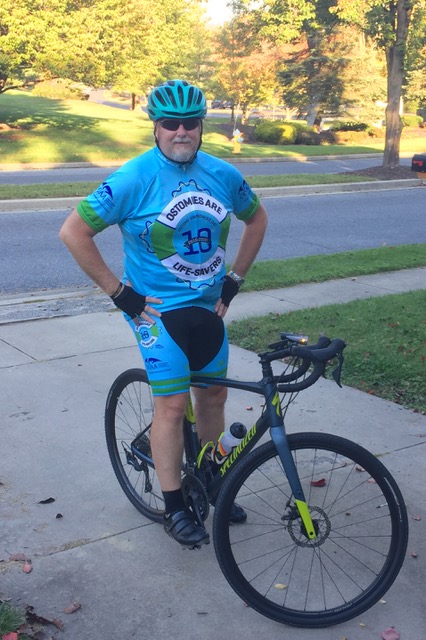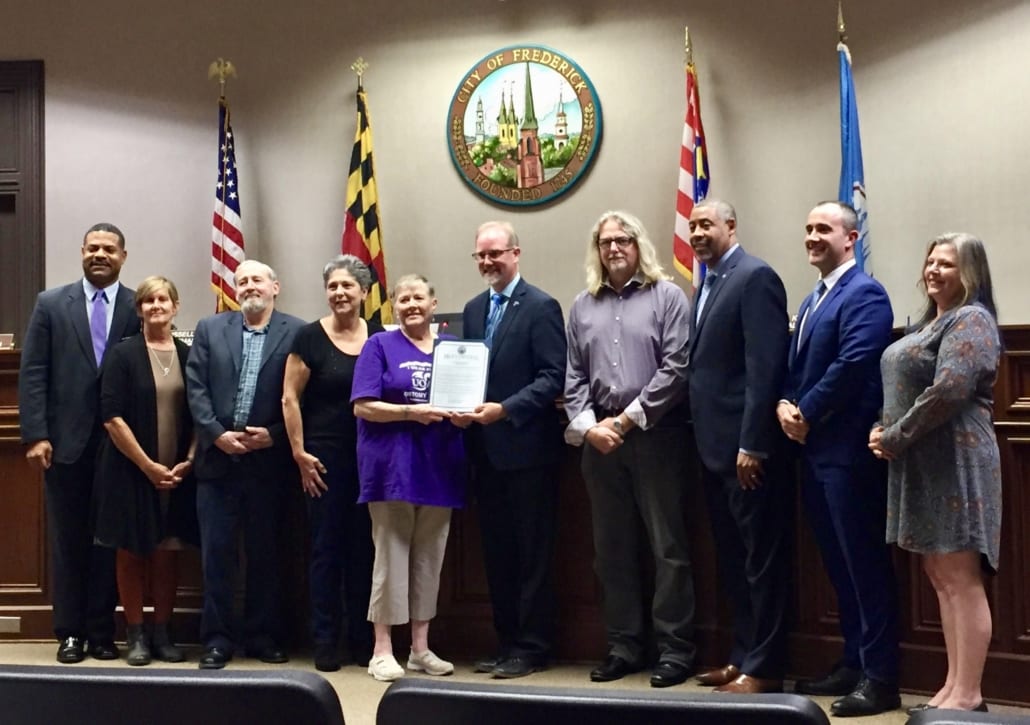Photo Cred: Dave Camara / Camara Photography
By Ed Pfueller, UOAA Communications & Outreach Manager
If you’re looking for Patrick McKinney you’ll likely find him outdoors. Depending on the season, McKinney, 54, of New Market, Maryland, can be found speeding down a ski slope, powering up a hill on his bike, tending to horses, or photographing his daughters playing sports.
That wasn’t always the case. In 1984, as a 17-year-old, while donating at a high school blood drive, he was found to be anemic. The formerly active teen had been experiencing incontinence with blood loss for 18-24 months and was afraid to tell anyone. After confiding in his mother and seeking a diagnosis, a colonoscopy revealed ulcerative colitis. By his mid-twenties he found himself hospitalized several times after his body stopped responding to conventional steroid-based therapies. In 1993 he had the first of five surgeries that over the years eventually led to a temporary ostomy and a j-pouch. He was plagued by stricture problems and other issues with the j-pouch. “With the j-pouch I was still going to the bathroom 15-20 times a day when it was bad,” McKinney remembers. When another surgery was required in 2004 because his j-pouch perforated leaving him septic, his doctor at the Cleveland Clinic prepared him for the fact that depending on how it went, McKinney could wake up with a permanent ileostomy.
“It’s like being a kid again, wind blowing in your hair takes you back to your teenage years”
 Indeed that was what happened and he experienced the struggles so many new ostomates have while trying to adjust both mentally and physically. McKinney now says, “Getting an ostomy was the best thing that ever happened to me, I got my life back.”
Indeed that was what happened and he experienced the struggles so many new ostomates have while trying to adjust both mentally and physically. McKinney now says, “Getting an ostomy was the best thing that ever happened to me, I got my life back.”
McKinney credits reading Rolf Bernirschke’s book Alive & Kicking for encouraging him to not be held back by his ostomy. “His book got my life back on a normal track. I started being an advocate and lived life again.” McKinney recalls.
McKinney wrote to Rolf and was honored to receive a Great Comebacks Eastern Region Award in 2008, which included the chance to meet the inspiring former NFL Man of the Year. Since then he has embraced taking part in sports he had never even tried before having ostomy surgery.
McKinney’s first major post-surgery athletic challenge was competing in a half-marathon in Sonoma, California in 2009. The success of it inspired him to try other competitive sports. A family ski trip to Colorado piqued his interest in alpine ski racing. After entering an amateur event in 2014, he was surprised to learn his time qualified for nationals in his age group. After that he was hooked on “running gates.” McKinney has been alpine racing ever since and is a member of NASTAR’s Team Zardoz and the United Ski And Snowboard Association (USSA) Mid-Atlantic Masters Ski Racing Association and trains at Montage Mountain in Scranton, PA.
During the rest of the year, McKinney can most often be found on his bicycle touring the rolling hills of rural Maryland. As a member of the Frederick (Maryland) Pedalers Bicycle Club he rides over 3000 miles per year including events like the Tour de Frederick and the Civil War Century.
“It’s like being a kid again, wind blowing in your hair takes you back to your teenage years,” he says. For those hesitant to try riding again McKinney advises “Being prepared helps to put your mind at ease.” “Have a plan and know where the bathrooms are at local parks, I empty right before to go out. The back pocket on a cycling jersey is perfect for bringing extra supplies and wipes. My ileostomy tends to not have much output when I’m being active.”
advises “Being prepared helps to put your mind at ease.” “Have a plan and know where the bathrooms are at local parks, I empty right before to go out. The back pocket on a cycling jersey is perfect for bringing extra supplies and wipes. My ileostomy tends to not have much output when I’m being active.”
In 2019 McKinney heard that UOAA’s National Conference was coming to Philadelphia, PA and welcomed the opportunity to see Rolf again and check out the unique event. Talking to other ostomates at the conference inspired him to do more with UOAA. “It helped me realize this is a chance to see what I can do, and that it is the right time to get more involved with the Frederick Area Ostomy Support Group.” McKinney has been an active member and is now the group’s President, supporting their activities even as in-person meetings were suspended this past year. In just the past few years he has offered his perspective as an ostomate to nursing students at a local community college and as an ostomy patient visitor. In support of Ostomy Awareness Day, he helped to procure proclamations from local government and organized a walk for the Run for Resilience Ostomy 5k, a major fundraiser for the programs and services of UOAA.
“Getting an ostomy was the best thing that ever happened to me, I got my life back.”
“The biggest thing is to provide some hope. Almost everyone is devastated and so unsure about how to live through this experience,” McKinney says. On a national level, McKinney is now a member of the United Ostomy Associations of America Education Committee.
“I try to lead through living my best life. Sharing what I can do, but also keeping in mind to listen to your body. Get out there and walk, or ride on a bike. For most, an ostomy will not impact that, I try to be encouraging and positive.”
His advice for other ostomates looking to get active? “Your only limitation is your mind. If your doc says you are healthy enough do it, hydrate, hydrate, and always be prepared.”


